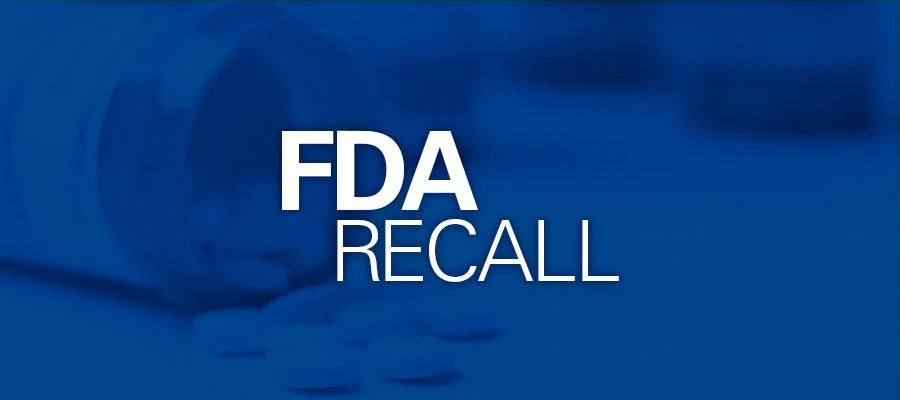
Top 10 FDA Recalls You Need to Know in 2024
The U.S. Food and Drug Administration (FDA) plays a vital role in safeguarding public health. One of the agency’s most critical functions is issuing recalls on products that might pose health risks. FDA recalls impact everything from food to drugs to cosmetics. Here’s an in-depth look at FDA recalls, the most recent updates, and why they matter.
What Is an FDA Recall?
An FDA recall is a corrective action taken when a product is found unsafe, mislabeled, or defective. The manufacturer typically initiates the recall, but sometimes the FDA requests it. Recalls can range in severity, from minor labeling issues to potentially dangerous defects. The FDA categorizes recalls into three classes:
- Class I: A dangerous product that could cause serious health consequences or death.
- Class II: A product that might cause temporary health problems or pose slight health risks.
- Class III: A product that is unlikely to cause health issues but violates FDA regulations.
Why Are FDA Recalls Important?
The FDA recall process ensures consumer safety, prevents illnesses, and upholds trust in public health. The FDA monitors and assesses potential risks, guiding consumers on how to act when a recall is issued. Whether it’s contaminated food, mislabeled drugs, or faulty medical devices, these recalls keep consumers informed and safe.
Stay Informed: Following FDA updates can protect you and your family. FDA recall alerts are essential to avoid exposure to harmful products.
How Are Recalls Communicated?
The FDA communicates recalls through its official website, press releases, social media, and news outlets. Consumers can also sign up for email alerts to stay updated. Here’s a quick link to check the FDA’s official recall database.
Top 10 FDA Recalls in 2024
Here are the ten most notable FDA recalls in 2024. These recalls span across categories, each affecting consumer health and safety in different ways.
1. Contaminated Baby Formula (Class I)
This popular baby formula was recalled due to potential contamination with harmful bacteria. Contaminated formula can cause severe infections, especially in infants. The recall was widespread, with many stores pulling products off their shelves.

2. Tainted Cough Syrup (Class II)
A cough syrup brand was recalled after traces of toxic ingredients were detected. This FDA recall affected several states, prompting people to discard or return the product.
3. Mislabelled Blood Pressure Medication (Class II)
A batch of blood pressure medication was mislabeled, leading to an urgent FDA recall. The mix-up could lead patients to take incorrect dosages, causing health risks.
4. Salmonella in Frozen Vegetables (Class I)
Frozen vegetables from a national brand were recalled after testing positive for Salmonella bacteria. Consuming contaminated products could lead to serious infections, especially in young children and the elderly.
5. Metal Fragments in Packaged Foods (Class I)
Metal fragments were found in packaged foods, leading to a widespread recall. This contaminant could pose choking hazards and lead to internal injuries.
6. Expired Ingredients in Dietary Supplements (Class II)
Some dietary supplements were found to contain expired ingredients, potentially reducing their effectiveness. The FDA recall affected several popular brands.
7. Faulty Medical Devices (Class I)
A commonly used medical device faced a recall after reports of malfunctions. The issue could lead to serious injuries or complications in patients relying on these devices.
8. Listeria in Cheese Products (Class I)
Cheese products were recalled due to Listeria contamination. This bacterium can lead to severe illness, especially in pregnant women, newborns, and older adults.
9. Over-the-Counter Painkillers with Contaminants (Class II)
An over-the-counter painkiller brand was found with potentially harmful contaminants. The recall was issued to prevent any health risks to users.
10. Misleading Labels on Gluten-Free Products (Class III)
A gluten-free brand was recalled after mislabeling products that contained gluten. This recall highlights the importance of accurate labeling for those with dietary restrictions.
How to Respond to an FDA Recall
- Check the Recall Notice: Verify if you own or have used the recalled product.
- Stop Using the Product: For health risks, stop using the product immediately.
- Dispose or Return: Follow FDA instructions, usually advising to return or dispose of the product.
- Seek Medical Advice: If symptoms develop, consult your doctor.
How the FDA Monitors and Issues Recalls
The FDA works closely with manufacturers, retailers, and the public to monitor issues in products. When a potential risk is identified, the FDA assesses the situation, working with companies to resolve the issue promptly. In some cases, the FDA issues a public health alert even before the formal recall process begins.
For More Information: Check the FDA’s recall page or visit Recalls.gov, a government site dedicated to recall updates.
How to Stay Updated on FDA Recalls
- FDA’s Website: The most accurate source for FDA recalls.
- Email Alerts: Sign up for FDA recall notifications.
- Follow News Outlets: Major news websites often publish significant recalls.
- Use Social Media: Follow the FDA on Twitter and other platforms for instant updates.
Importance of Being Aware of FDA Recalls
Understanding FDA recalls keeps you and your family safe. These recalls serve as a reminder of the FDA's role in health protection and consumer safety. Whether you’re a consumer, healthcare provider, or business owner, staying informed helps prevent health risks and promotes better choices.
FDA Recalls continue to play a pivotal role in ensuring consumer safety. Remember, the FDA’s recall system works effectively because consumers like you stay vigilant and informed. Stay safe, follow recall alerts, and always double-check products for safety!
